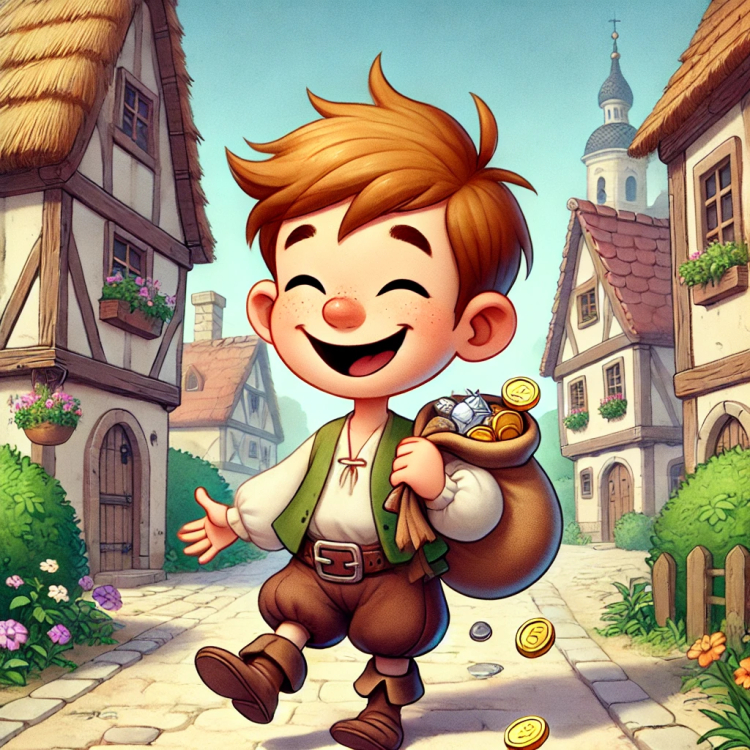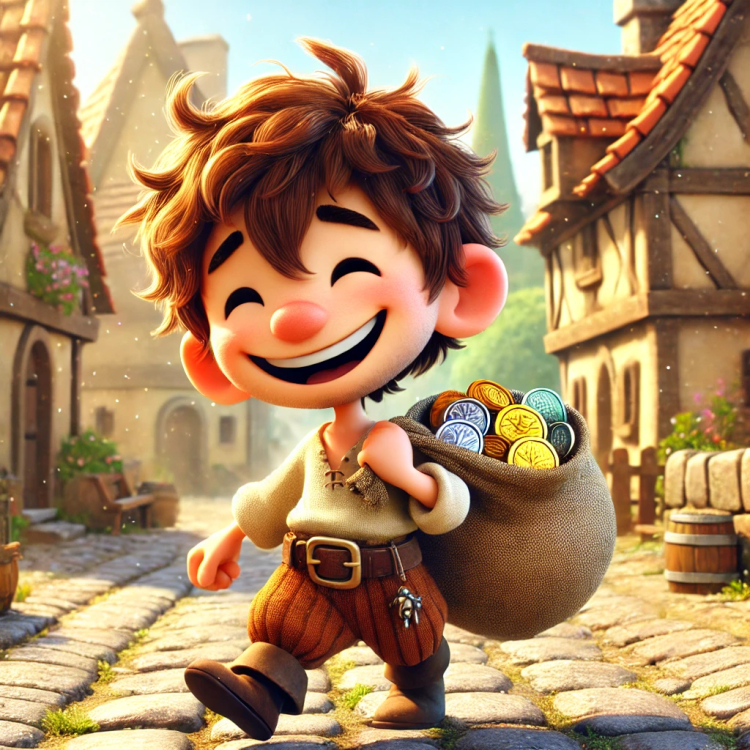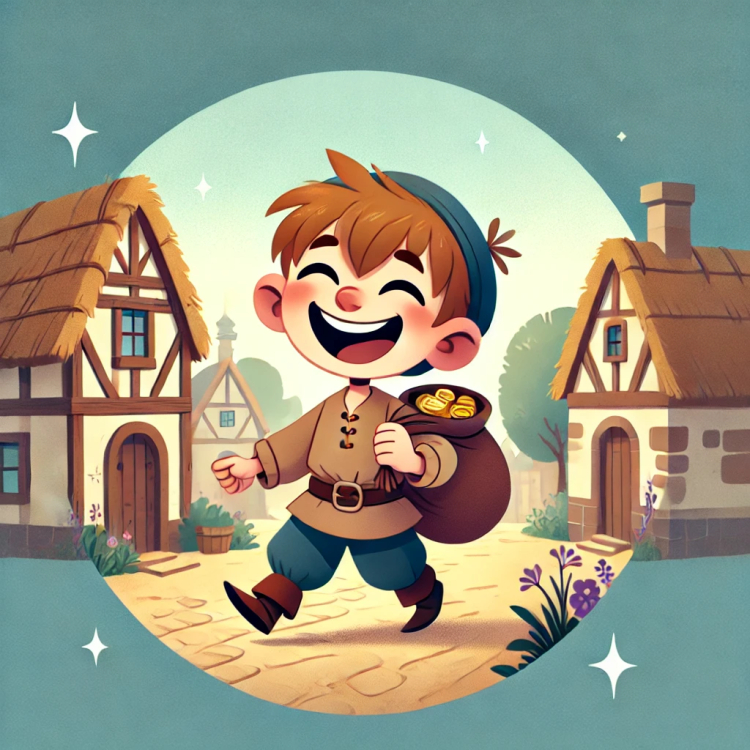Hans in Luck – A German Folk Tale about the Search for Happiness and Joy in Simple Things
The German folk tale "Hans in Luck" tells the story of a young man who exchanges his wealth for happiness and finds joy in the simplest things.

Brief Description:
Hans in Luck is a German folk tale about a young man who, on his journey from wealth to simplicity, finds true happiness. The story teaches that joy lies in inner peace, not in material goods.

In a small village, there lived a kind and simple boy named Hans. He had worked honestly for his master for seven years, and when it was time to say goodbye, the master rewarded him with a large gold bar. — This is the payment for your faithful service, — said the master. Hans was very pleased. He wrapped the gold in a cloth and set out on his way to his mother, who lived in another village.
The journey was long, and the gold bar was heavy. Hans walked along the road, growing so tired that his feet began to ache. Soon he met a man who was leading a horse on a rope. — Oh, if only I had something to ride instead of walking, — sighed Hans. The man offered him a trade: — Give me your gold, and I will give you my horse. Hans agreed, thinking he had made a good exchange. Now he could ride.
But the joy didn’t last long. The horse galloped off, and Hans almost fell. He decided that it would be better to ride something calmer. When he met a farmer with a cow, he suggested a swap. — A cow is not only easier to lead, but it also gives milk, — said Hans. The farmer agreed, and Hans went on with the cow.

However, the cow didn’t give milk, and Hans felt disappointed again. Soon he met a man with a goose. — A goose is much lighter than a cow, and you can get feathers for a pillow, — thought Hans. He exchanged the cow for the goose and went on.
Hans continued on his way and met another man who was carrying a sharpening stone. The man offered to trade the goose for the stone. Hans, thinking the stone might come in handy for sharpening knives and earning a living, agreed. Now he was left with just the stone.
But carrying the stone, Hans grew so tired that he could not walk any longer. Finally, he decided that the stone was not necessary and threw it into the river. He felt incredibly light. — Now I am completely free, — he said to himself. — I have no gold, no stone, but I can walk easily and with joy. When he reached home, his mother was glad to see him. She prepared a delicious dinner for him, and Hans realized that true joy lies in the simple things in life.
The Moral of the Story:
The tale teaches that happiness does not depend on material possessions. True joy is inner peace, the ability to appreciate what you have, and the joy in simple things.
Questions for Children:
- Why did Hans decide to exchange the gold for the horse?
- What other exchanges did Hans make, and how did they end?
- What lesson can we learn from this story?
What's Your Reaction?




















